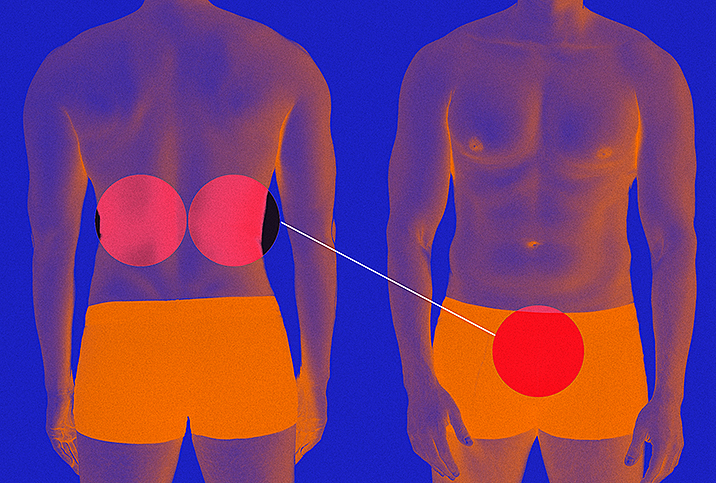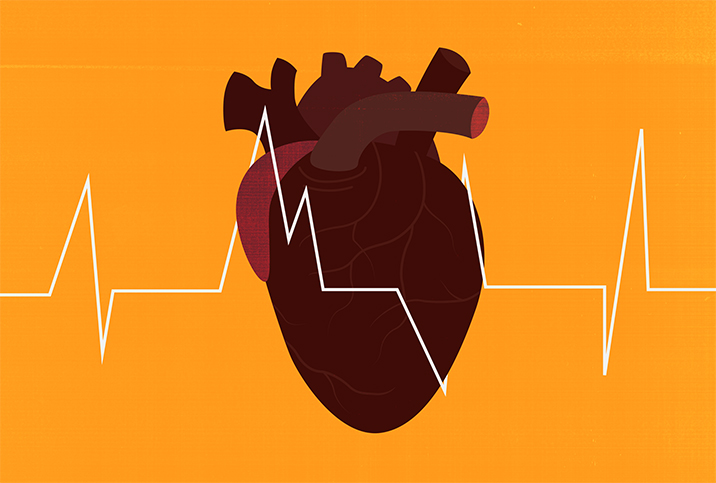Early Detection and Prevention of Kidney Disease

The keys to diagnosing kidney disease early are to know your family history, maintain an active and healthy lifestyle, and request a blood test to check your kidney function.
You may not want to think your hereditary disposition to kidney disease is a certainty, but requesting regular tests ensures that once a decline in function is noticed, you can find the right treatment for the disease.
Why testing is so important
"In most countries, an annual check for kidney function is part of a physical for every patient," said Holly Kramer, M.D., professor of public health sciences at Loyola University Chicago and immediate past president of the National Kidney Foundation. "Unfortunately, the United States is one country that lags in this important diagnostic practice."
The biggest irony of not having the test is it could be performed with blood already drawn as part of an annual blood panel. When we consider as many as 9 in 10 people with chronic kidney disease don't know they have it, it's clear the condition needs to be a topic of conversation among doctors and patients, especially if someone is genetically predisposed.
"The biggest concern I have, as a physician, is the underestimation of how big this disease is," said Susan Quaggin, M.D., president of the American Society of Nephrology (ASN), nephrology being kidney medicine. "Many patients are shocked to learn that this disease can be stopped with early detection, treatment and lifestyle changes."
As a result, Quaggin said, when patients understand how common chronic kidney disease is, their first response is to request an annual screening.
"We know education works," she said. "It's getting the information to the patients that seems to be the difficulty."
High-risk activities
One of the most valuable tools is to educate patients on the behaviors that increase the likelihood of developing kidney disease.
"The choices that increase your chances of kidney disease are no surprise," Kramer said. "Smoking, inactivity, obesity and a poor diet increase your chances of so many diseases, and kidney disease is no exception."
Both Kramer and Quaggin cautioned patients that genetics can be equally important in considering their risk factors, too.
"I've seen otherwise healthy adults in my office with major kidney function decline," Kramer confirmed. "However, eliminating or avoiding these risky behaviors can help any kidney patient to maintain stable kidney function."
Numerous studies indicate these unhealthy behaviors can create a cumulative risk factor, and damaging as they are, the research shows that by managing these factors and the diseases that contribute to kidney disease, patients can reduce their risk, prevent the onset and control the progression.
Preventing the progression
The Centers for Disease Control and Prevention (CDC) recommends that anyone with an increased risk for kidney disease undergo annual testing. This guidance is emphasized for patients with diabetes, high blood pressure, high cholesterol and anemia, because these diseases can directly damage the kidneys.
However, the U.S. Preventive Services Task Force, an independent panel that makes medical recommendations, in 2012 eliminated its recommendation that all patients should receive annual kidney screenings.
"That decision has led to an increase in undiagnosed kidney disease in the United States," Quaggin said. "There could be thousands of people walking around with chronic kidney disease and they won't know it until the more advanced symptoms are displayed, and this can mean that permanent damage is already done."
Thankfully, with the help of organizations such as ASN and the National Kidney Foundation (NKF), and members of Congress, the task force decided in February 2022 to reevaluate testing guidelines.
The NKF and ASN hope new advancements in testing, treatment and prevention can show the task force that prevention and early detection is a lifesaving strategy and more cost-effective than treating advanced stages—evidence which could provide the proof and incentive for the task force to reverse its 2012 decision.
Taking control of your health
The most common recommendation for every chronic kidney patient is to maintain or start a healthy diet and participate in a regular exercise regimen. That's easy enough to say, but people need time to develop new habits.
Even the most active adults might struggle with making healthy food choices. For some people, being physically active is a free pass to eat the indulgent, fat-rich foods they crave. An article published in the Aspetar Sports Medicine Journal revealed that many athletes actually increase their risk for high blood pressure because their diets are high in caffeine, sugar, salt and processed foods.
All of these ingredients can be hidden in energy drinks, protein bars, sports drinks and dietary supplements. These findings show that a collective approach, which balances a healthy diet, exercise and annual health visits, is best to maintain a healthy body and help prevent chronic diseases.
With early detection, patients can stop permanent kidney damage, which could prevent invasive treatments such as dialysis or transplantation. The first step every patient should take after their diagnosis is to understand the contributing health concerns that could lead to lasting damage. This means having a conversation with your doctor, both to review your full blood panel and to discuss other aspects of your health that need attention.


















